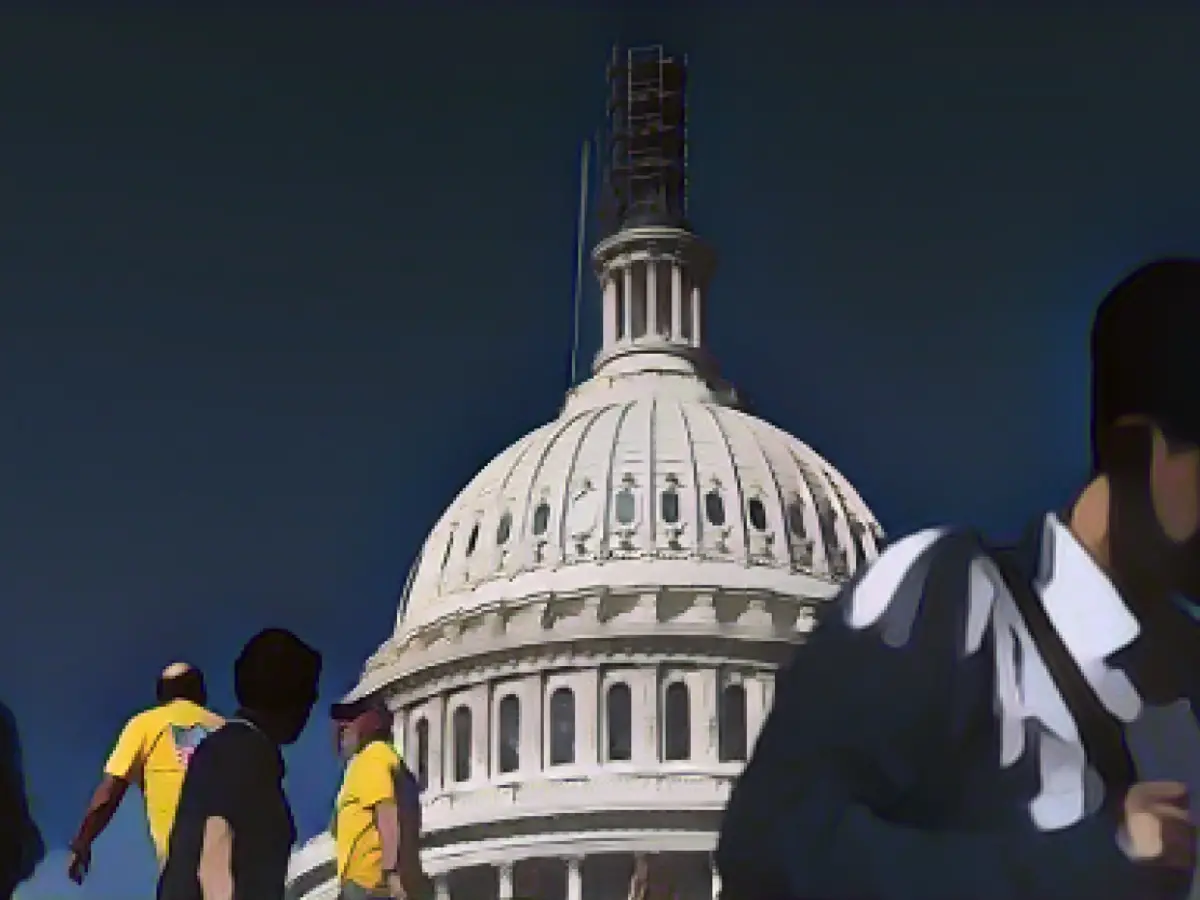Crypto titans bankroll $78 million for political clout
Last Monday, Fairshake, a political action committee (PAC) under the leadership of the Super-PAC Fairshake, made headlines after announcing their eye-popping $78 million war chest, destined for use in the looming 2024 presidential election.
Much of this astounding sum came from the digital currency sector, with prominent players such as Coinbase, Circle, and Kraken, along with tech giants, like Andreessen Horowitz and the Winklevoss twins, contributing generously.
In a statement, Fairshake declared their mission was to support leaders who embrace innovation and are willing to navigate the complexities of responsible regulation in the digital age.
This staggering cash hoard highlights the burgeoning political strength of the still relatively young crypto industry, capable of commanding financial resources that rival some of the country's top PACs. At the beginning of this year, Coinbase, a Nasdaq-listed digital currency platform, established the first independent non-profit organization within the crypto sector, dedicated to lobbying Congress for favorable digital currency legislation.
The influx of PAC money also helps close the political donation gap left by Sam Bankman-Fried, who donated $36 million to Democratic causes in 2022.
Crypto transactions took place predominantly in a regulatory vacuum within the United States, with the industry lobbying for a framework for digital assets. However, the SEC has maintained a hostile stance towards the multi-billion-dollar industry in recent years.
Advocates of crypto are optimistic that Washington is starting to switch sides.
This summer, several bills regarding crypto regulation have been introduced in the House of Representatives. In contrast, the Senate faces a formidable challenge. Meanwhile, a significant court ruling in August paved the way for the creation of exchange-traded funds (ETFs) directly tied to the bitcoin spot price, making it more accessible for mainstream investors to invest in the dominant currency. Regulators are expected to make their decision on the Bitcoin ETF application by early January.
The political drive reflects the industry's desire to improve its image, a process closely tied to the collapse of FTX crypto exchange more than a year ago and the conviction of the co-founder of the company, Sam Bankman-Fried, on fraud charges. Shortly after a jury found Bankman-Fried guilty of embezzling customer funds, the CEO of Binance, the world's largest crypto exchange platform, pleaded guilty to money laundering charges brought by the U.S. government.

Additional Reads:
Armed with significant political funding from tech firms and investors, the crypto scene is bolstering its political muscle, challenging some of the country's top PACs financially.
In recent elections and in preparation for the 2024 race, the crypto industry has emerged as a major player in the U.S. political scene, pouring millions into political campaigns and PACs.
This funding influence has led to key plays in the political landscape, such as the defeat of former Democratic Senator Sherrod Brown, a crypto critic who served as the Senate's banking committee chair[1].
From a regulatory perspective, the crypto industry is pressing for clear rules and guidelines that will foster innovation, protect consumers, and cultivate an environment where digital assets can thrive.
In an effort to prompt clearer regulations, several key initiatives have come to light:
Executive Orders and Task Forces
- The Trump administration executive order titled “Strengthening American Leadership in Digital Financial Technology” aims to elevate U.S. influence in digital assets and financial technology while safeguarding economic liberty. This order formed the President’s Working Group on Digital Asset Markets, which will be chaired by David Sacks, the White House’s Special Advisor for AI and Crypto[2][3].
- The SEC established a Crypto Task Force under Commissioner Hester Peirce, tasked with pushing forward a comprehensive, transparent regulatory framework for crypto assets. This task force looks to provide regulatory clarity rather than relying on enforcement actions[2].
Legislative Efforts
- Introduced in Congress are several bills, including the Financial Innovation and Technology for the 21st Century Act, the Digital Asset Market Structure and Investor Protection Act, and the Responsible Financial Innovation Act. These legislations aim to establish a balanced jurisdiction for the SEC and the CFTC regarding crypto[4][5].
- The push for stablecoin regulation and clarity in crypto exchange operations is gathering steam. One proposed measure would set reserve requirements for stablecoin issuers, while another pushes for definitions of how digital assets are classified as securities versus commodities[1].
Industry Advocacy
- The highly influential cryptocurrency industry is lobbying aggressively for favorable regulations. With David Sacks' appointment as the White House's Special Advisor for AI and Crypto, as well as the involvement of other crypto-friendly lawmakers, the industry is aiming to exert a strong influence on regulatory decisions[1][3].
- The crypto sector promotes regulations that balance consumer protection with innovation, as demonstrated in the priorities of the Crypto Task Force and the executive order, which aim to strengthen U.S. leadership in digital financial technology while safeguarding economic liberty[2][4].
In summary, the crypto industry's political influence, significant spending, and industry-led advocacy efforts have set the stage for meaningful change in the regulatory landscape. Through executive orders, task forces, and legislation, the crypto sphere is pushing for clearer guidelines that will foster growth, safeguard consumers, and ensure digital assets can operate without undue burdens.








